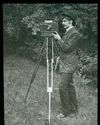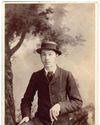
DxO, the company with PureRaw and the Nik Collection in its stable, has revamped its flagship editing and workflow software. The updates to PhotoLab 6 from the previous version aren’t huge but they are significant and worthwhile if you want the best image quality, especially from high ISO images.
DxO has possibly the best raw de-mosaicing and de-noising technology available in any software, although I’m sure ON1 and Topaz will have a view on that. It started with Prime, which evolved to the even more effective DeepPRIME. In PhotoLab 6, the technology has been advanced further with the addition of DeepPRIME XD eXtreme Detail).
As a regular and keen user of DeepPRIME, I was keen to check out the benefits of the XD setting. Before I do, I should first cover the other key changes in version 6 and also say that PhotoLab 6 is fully supported by DxO's renowned correction profiles with thousands of camera/lens combinations available.
DxO has re-engineered its colour-processing algorithms and there is a new extended working colour space called DxO Wide Gamut that has a broader colour range than its Classic colour space. Toggling between the two reveals notable differences, especially in the blues and greens which are much brighter.
Another addition is a soft proofing function so you can check how images look in different ICC colour spaces including those paper profiles that you use for home or lab printing. Relative and Perceptual intents are available too.
In any workflow, the odds are you will need to clone out the odd crisp packet, sensor spot or heal skin blemishes, and DxO has a new ReTouch tool (formerly called the Repair tool) to help you fulfil those needs. Essentially, the tool lets you perform complex cloning and healing tasks with finetunable brushes that can be modified, flipped and rescaled which means you can do more tidying up without having to go beyond PhotoLab.
This story is from the {{IssueName}} edition of {{MagazineName}}.
Start your 7-day Magzter GOLD free trial to access thousands of curated premium stories, and 9,000+ magazines and newspapers.
Already a subscriber ? Sign In
This story is from the {{IssueName}} edition of {{MagazineName}}.
Start your 7-day Magzter GOLD free trial to access thousands of curated premium stories, and 9,000+ magazines and newspapers.
Already a subscriber? Sign In

140 years of change
AP has become the world’s oldest surviving consumer photo magazine because we have moved with the times, says Nigel Atherton

Preserving history in platinum
A deep dive into the meticulous art of platinum printing, and the collaboration between the Royal Geographical Society and Salto Ulbeek. Mike Crawford explores how they brought historical photographs to life with enduring beauty and precision

Life in the past lane
What was life like for an amateur photographer in 1884? John Wade takes a trip back in time

Choice cuts
How many trillions of photographs must have been taken in the past 140 years? Amy Davies asked some of our regular contributors for their favourites....a difficult task, to say the least

How good a camera can you buy for just £140?
Three members of the AP team see what they can find for the money

Round Five: The Best of the Rest
The APOY judges choose their favourite images that didn’t make the top ten of our Landscapes category

Amateur Photographer of the Year
Here are the top ten images uploaded to Photocrowd from Round Five, Landscapes, with comments by the AP team and our guest judge

FILM STARS A lifetime of landmarks
Cameras that hit the headlines between then and now. John Wade is your guide

140 years of Amateur Photographer
As AP celebrates its 140th birthday next month, Nigel Atherton looks back at its glorious past

John Wade considers...World War II: Home Front 1940, by A.J O'Brien
Say the word 'Wall's' to those of a certain age and two things spring to mind: sausages and ice cream.